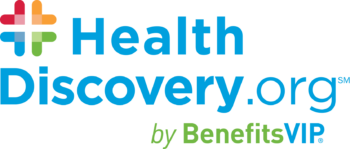Every day consumers make important decisions that affect their family’s health and health-related financial security. Making these choices can be stressful and overwhelming, especially if a family member is ill or considerable medical expenses are involved.
Often, it may seem like you don’t have a choice when faced with the cost of medical procedures, but that is not always the case. Many consumers today are taking more responsibility for their health care, which includes seeking more information about the cost of health services and making informed decisions regarding their care.
This movement is called consumer driven health care. You may already participate in a consumer driven plan, if your employer offers a high-deductible health plan (HDHP) coupled with a health savings account (HSA).
Comparison Shopping
Consumer driven health care, or consumerism, revolves around the idea that consumers should be able to make informed choices about their medical care based on price and quality information. The eventual goal is for well-informed health care consumers to compare prices—choosing more wisely and ultimately lowering overall health care costs for everyone. However, the apples-to-apples comparison used for most products or services is mostly useless in the health care marketplace.
To date, lawmakers and health insurance companies have placed a great deal of emphasis on developing consumer driven insurance products, but price transparency, an important aspect, has been mostly overlooked. Generally, the prices of health care services are not made public, making comparison shopping seem impossible. For realistic comparison shopping between hospitals, for example, you need to know in advance what the bottom line price would be for an all-inclusive bill, including hospital and physician fees. However, it’s hard to hunt for bargains when the prices of various tests, treatments and procedures differ significantly depending on a variety of factors, such as the type of health insurance you have, whether you have surgery at a hospital or freestanding surgery center, and whether your surgeon or anesthesiologist participates in your health plan’s network.
The goal of price transparency in health care is to help buyers have an easier time determining which providers have the lowest prices. Good information on provider quality is also important, so consumers aren’t compelled to simply choose the “cheapest” alternative, but rather make choices that provide the best quality health care for the best value.
The growth of consumerism in health care and the growing prevalence of HSAs as an integral part of employer-sponsored health benefits are likely to put pressure on hospitals, physicians and other health care providers to make their prices more readily available.
Many health insurance companies are offering consumer driven health plans and taking steps to encourage plan members to shop around for medical services. Many have begun offering online tools and resources to compare and evaluate cost and quality for various health services. Find out if your health insurer offers any similar tools on their website.
Take Action Today
If your company offers a consumer driven plan such as an HSA paired with an HDHP, consider choosing this plan during your next enrollment period.
If you’re currently enrolled in a consumer driven health plan with a carrier that makes price information available, use this information to begin the task of comparison shopping. If you want to be a health care bargain hunter, but don’t know where to start, ask your health plan what tools it offers for comparing prices. Even if you are not in this type of plan or don’t have resources available through your insurer, you can still make smarter choices about your health care. Don’t be afraid to pick up the phone and call around, and remember to be assertive with your questions and take good notes.
The following are some of the charges that you want to focus on when gathering information:
Below are additional online resources you can use to find health care price and quality information.
HealthGrades Inc., www.healthgrades.com
This website provides physician, hospital and nursing home ratings and quality data, plus cost information for a variety of medical procedures ranging from gastric bypass to cataract surgery.
New Choice Health, www.newchoicehealth.com/
This site provides estimated costs for various procedures, organized by region or provider, reviews of health care facilities, plus the ability to request a procedure price quote from local providers.
URAC, www.urac.org
The “consumer” section of URAC’s website provides a list of its accredited health care organizations.
Agency for Healthcare Research and Quality (AHRQ), www.ahrq.gov
The “consumers and patients” section of this website provides information on topics including choosing quality care, understanding medical conditions and comparing medical treatments.
HealthCare.gov, www.healthcare.gov/choose-a-plan/find-provider-information/
Find local hospitals, nursing homes and other facilities, and compare on a variety of quality measures.














